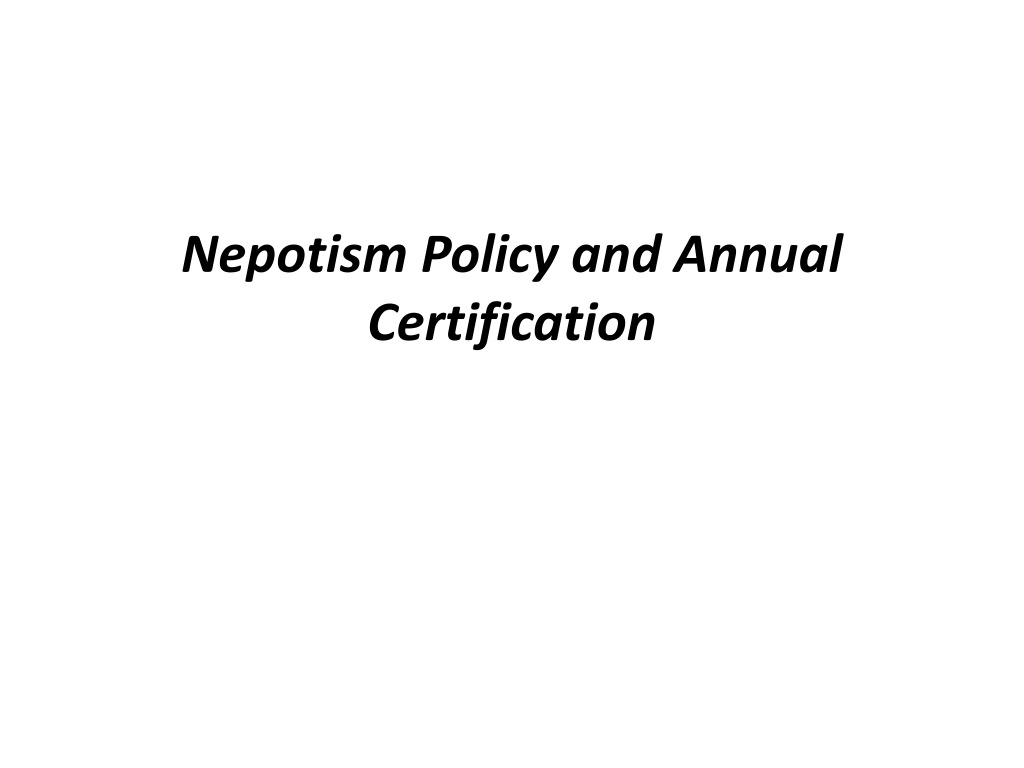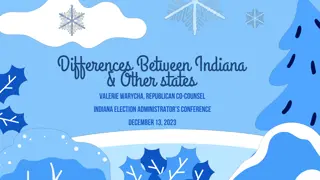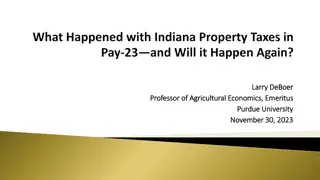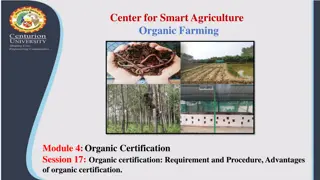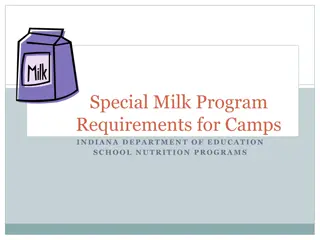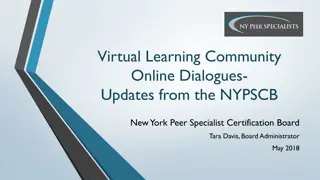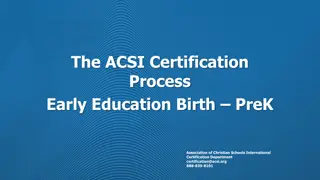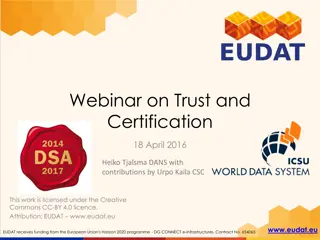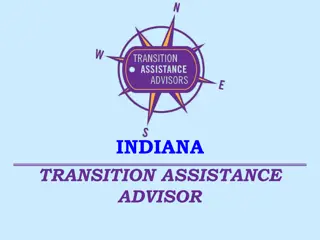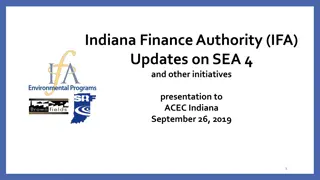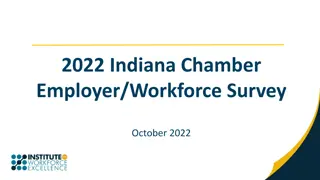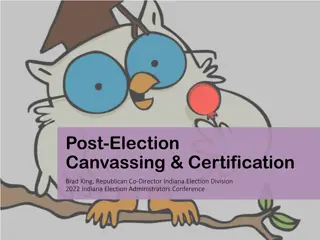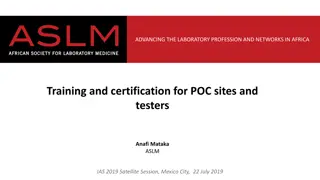Nepotism Policy and Certification Requirements in Indiana
Indiana has regulations regarding nepotism in employment, outlining definitions of relatives and restrictions on direct line of supervision. Elected officers must annually certify compliance with these rules to avoid penalties. Failure to implement these policies can result in budget approval restrictions by the Department of Local Government Finance.
Download Presentation

Please find below an Image/Link to download the presentation.
The content on the website is provided AS IS for your information and personal use only. It may not be sold, licensed, or shared on other websites without obtaining consent from the author. Download presentation by click this link. If you encounter any issues during the download, it is possible that the publisher has removed the file from their server.
E N D
Presentation Transcript
Nepotism Policy and Annual Certification
Nepotism statutes are in Indiana Code (IC) 36-1-20.2 IC 36-1-20.2-10 Individuals who are relatives may not be employed by a unit in a position that results in one (1) relative being in the direct line of supervision of the other relative. IC 36-1-20.2-9(a) This chapter establishes minimum requirements regarding employment of relatives. The legislative body of the unit shall adopt a policy that includes, at a minimum, the requirements set forth in this chapter.
IC 36-1-20.2-8 defines relative as Spouse Parent or stepparent Child or stepchild Brother, sister, half-brother, half-sister, stepbrother, stepsister Niece or nephew Aunt or Uncle Daughter-in-law or son-in-law Adoptive child is considered same as natural child Some individuals may be grandfathered in IC 36-1-20.2-2 An individual who is employed by a unit on July 1, 2012, is not subject to this chapter unless the individual has a break in employment with the unit. The following are not considered a break in employment with the unit. (1) The individual is absent from the workplace while on paid or unpaid leave, including vacation, sick, or family medical leave, or worker s compensation. (2) The individual s employment with the unit is terminated followed by immediate reemployment by the unit, without loss of payroll time.
Direct Line of Supervision IC 36-1-20.2-4(a) . . . a person is in the direct line of supervision of an elected officer or employee if the elected officer or employee is in a position to affect the terms and conditions of the individual s employment, including making decisions about work assignments, compensation, grievances, advancements, or performance evaluation. Direct line of supervision does not include the responsibilities of the executive, legislative body, or fiscal body to make decisions regarding salary ordinances, budgets, or personnel policies of the unit. Annual Certification IC 36-1-20.2-16 requires each elected officer of the unit to annually certify in writing, subject to the penalties of perjury, that the officer has not violated this chapter. An officer shall submit the certification to the executive of the unit not later than December 31 of each year.
Reminders: IC 36-1-20.2-17 If the state board of accounts finds that a unit has not implemented a policy under this chapter, the state board of accounts shall forward the information to the department of local government finance. IC 36-1-20.2-18 If a unit has not implemented a policy under this chapter, the department of local government finance may not approve: (1) the unit s budget; or (2) any additional appropriations for the unit; for the ensuing calendar year until the state board of accounts certifies to the department of local government finance that the unit is in compliance with this chapter.
Contracting Policy and Annual Certification
Contracting policy and annual certification statutes are in Indiana Code (IC) 36-1-21 IC 36-1-21-5(a): A unit may enter into a contract or renew a contract for the procurement of goods and services or a contract for public works with: (1) an individual who is a relative of an elected official; or (2) a business entity that is wholly or partially owned by a relative of an elected official; only if the requirements of this section are satisfied and the elected official does not violate IC 35-44.1-1-4. (conflict of interest statute) IC 36-1-21-5(b) lists several requirements of the elected official and the appropriate agency of the unit of government.
IC 36-1-21-2 defines Elected Official as: The executive or a member of the executive body of the unit; A member of the legislative body of the unit; A member of the fiscal body of the unit. IC 36-1-21-3 defines relative as Spouse Parent or stepparent Child or stepchild Brother, sister, half-brother, half-sister, stepbrother, stepsister Niece or nephew Aunt or Uncle Daughter-in-law or son-in-law Adoptive child is considered same as natural child
IC 36-1-21-4 establishes the minimum requirements regarding contracting with a unit. The legislative body of the unit shall adopt a policy that includes, at a minimum, the requirements set forth in the chapter. The policy may include requirements that are more stringent or detailed than any provision in IC 36-1-21 and may apply to individuals who are exempted or excluded from the application of the chapter. The unit may also prohibit or restrict an individual from entering into a contract with the unit that is not otherwise prohibited or restricted by IC 36-1-21 Annual Certification IC 31-1-21-6 requires each elected officer of the unit to annually certify in writing, subject to the penalties of perjury, that the officer is in compliance with this chapter. An officer shall submit the certification to the executive of the unit not later than December 31 of each year.
Reminders: IC 36-1-21-7 If the state board of accounts finds that a unit has not implemented a policy under this chapter, the state board of accounts shall forward the information to the department of local government finance. IC 36-1-21-8 If a unit has not implemented a policy under this chapter, the department of local government finance may not approve: (1) the unit s budget; or (2) any additional appropriations for the unit; for the ensuing calendar year until the state board of accounts certifies to the department of local government finance that the unit is in compliance with this chapter.
